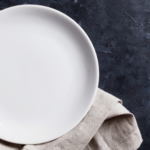Plastic utensils, such as forks, spoons, and knives, have become a staple in our modern, fast-paced lives. They are convenient, lightweight, and disposable, making them a popular choice for takeout meals, picnics, and parties. However, as the global plastic crisis continues to escalate, questions arise about the sustainability of plastic utensils and whether or not they can be recycled. In this blog, we will delve into the reality of plastic utensils and their recycling options, explore alternative solutions, and discuss practical steps we can take to reduce plastic utensil waste.
The Reality of Plastic Utensils and Recycling
Plastic utensils are a common sight in our daily lives, but many people are unaware of the challenges they pose in terms of recyclability. While some plastic utensils can be recycled, others are not accepted by curbside recycling programs. Understanding the types of plastics used in utensils is essential to determine their recyclability, as different plastic types have different recycling properties. Let’s take a closer look at the types of plastics commonly found in utensils and their recyclability.
Understanding the Types of Plastics Used in Utensils
Plastic utensils are often made of polystyrene, polypropylene, or other lightweight plastics. These plastics are chosen for their durability, affordability, and convenience. However, not all plastic utensils are created equal when it comes to recyclability. Resin identification codes, indicated by numbers inside the recycling symbol, help identify the type of plastic used in utensils. By educating people about the different types of plastics in utensils, we can promote responsible recycling practices and reduce plastic waste.
The Recyclability of Different Plastic Types
When considering the recyclability of different plastic types, it’s important to note that certain plastics, like polypropylene, are more easily recyclable. However, not all plastic types used in utensils are accepted by curbside recycling programs. Recycling facilities often have special washing processes for plastic utensils, but some plastic types, such as polystyrene, pose challenges in recycling due to their lightweight nature. Understanding the recyclability of different plastic types can significantly reduce plastic waste.
The Journey of Plastic Utensils in Recycling Systems
Plastic utensils, including disposable plates and plastic knives, enter the recycling journey in the United States. They are often not recyclable due to their composition (plastic tableware) and end up creating less waste. A significant reason is the lack of special washing facilities and the recycling symbol on them.
Challenges in Recycling Plastic Utensils
The lightweight nature of plastic utensils poses significant challenges in the recycling process. At recycling facilities, sorting plastic utensils from other recyclables is a complex and labor-intensive task. Unfortunately, due to these recycling challenges, plastic utensils often end up in landfills, contributing to overflowing garbage. Overcoming these challenges requires innovative solutions to ensure proper disposal and avoid environmental harm.
The Impact of Non-Recyclable Plastic on the Environment
Non-recyclable plastic utensils contribute to environmental pollution, impacting biodiversity and landfill overflow. Landfill disposal affects soil and water quality, calling for sustainable alternatives and responsible use awareness.
Alternatives to Plastic Utensils
When considering alternatives to plastic utensils, there are several options to explore. From disposable plates and plastic cutlery to regular cutlery and packaging, each has its own environmental impact. For a more sustainable choice, consider using compostable or biodegradable tableware.
Exploring Reusable Cutlery Options
When considering eco-friendly alternatives, reusable cutlery, like metal utensils, presents a sustainable option. By investing in reusable options, individuals contribute to waste reduction and align with sustainable practices. Making the switch to reusable cutlery not only minimizes the need for disposable plastic utensils but also allows for a positive environmental impact.
The Rise of Biodegradable Utensils
The emergence of biodegradable utensils presents a sustainable choice for consumers. These utensils break down naturally, minimizing environmental impact, and are made from materials that decompose without harming the environment. The growing availability of biodegradable utensils encourages sustainable choices in food service industries, supporting eco-friendly practices and reducing plastic waste.
Ways to Reduce Plastic Utensil Use
Switching to using disposable plates, plastic knives, and plastic tableware all contribute to less waste. Consider using regular cutlery or bringing your own plastic cutlery to reduce the need for plastic utensils at your next party. This simple change can make a big impact on reducing plastic waste in the environment.
Saying No to Plastic Utensils in Takeout Orders
By opting out of disposable utensils, takeout orders can significantly reduce plastic waste and minimize environmental impact. Choosing reusable cutlery over plastic utensils supports sustainable practices. Encouraging local restaurants to offer plastic utensils only upon request promotes eco-friendly alternatives and less waste.
Encouraging Use of Personal Reusable Utensils
Embracing reusable utensils reduces plastic consumption. Carry them for takeout and dining out to minimize waste. Opt for durable, eco-friendly utensils made from sustainable materials. Encourage others to use reusable utensils to support sustainability.
Practical Steps for Disposing of Plastic Utensils
When disposing of plastic utensils, consider using disposable plates and plastic tableware. In the United States, some municipalities accept plastic plates in the curbside recycling program, leading to less waste. Look for the recycling symbol on plastic knives and forks, as main reasons to recycle include climate change and reducing landfill waste.
When Recycling Is Not an Option
Although recycling is not always an option for plastic utensils, there are alternative ways to reduce waste and environmental impact. Seeking local programs, donating to shelters, and repurposing for art or household items are great options. Being innovative and creative with plastic utensils can significantly contribute to minimizing plastic waste.
Creative Ways to Reuse Plastic Utensils
When looking for creative ways to reuse plastic utensils, consider transforming them into unique and functional art pieces. You can also utilize plastic utensils for gardening, crafting, or DIY home projects. Consider creating cutlery wind chimes or decorative items from these utensils. Repurpose them for educational art activities with children and develop innovative, eco-friendly uses for them in daily life.
The Safety of Reusing Plastic Utensils
Plastic utensils, especially disposable plates and plastic knives, contribute to less waste but can be risky due to a lack of special washing facilities. This raises concerns about safety and hygiene, making regular cutlery a better choice. It is essential to consider the environmental impact of plastic tableware.
Health Risks Associated with Repeated Use
Repeated use of plastic utensils may pose potential health hazards, so it’s important to stay informed and assess the impact. Educate yourself about the health risks associated with frequent use and be aware of the potential concerns. Understanding the importance of assessing these risks is crucial for making informed choices.
Guidelines for Safe Reuse of Plastic Utensils
When reusing plastic utensils, it’s crucial to adhere to established safety protocols and recommended guidelines. Implement safe and hygienic methods, and familiarize yourself with best practices for their responsible reuse. It’s essential to follow these guidelines for the safe and proper reuse of plastic utensils.
The Future of Plastic Utensils
The future of plastic utensils is evolving due to increasing awareness and environmental concerns. Innovations in disposable plates and plastic tableware aim to reduce waste and the carbon footprint. Recycling symbols on packaging and cutlery, along with special washing facilities, contribute to less waste and improved sustainability.
Innovations in Eco-Friendly Utensils
Innovative, environmentally friendly utensils made from alternative, sustainable materials are on the rise. Stay informed about cutting-edge advancements that reduce environmental impact and support their adoption in daily life for a sustainable future. Embrace eco-friendly alternatives to traditional plastic utensils, fostering a positive impact.
Policies and Regulations Affecting Plastic Utensil Use
Policies and regulations play a crucial role in addressing the environmental impact of plastic utensils. Different countries and cities have varying policies, but enforcement poses challenges. Businesses and consumers are essential in reducing plastic utensil waste, while potential innovations offer hope for a sustainable future.
Are We Doing Enough to Reduce Plastic Utensil Waste?
Is enough being done to minimize plastic utensil waste? Despite individual efforts, a substantial amount still ends up in landfills and the ocean. Businesses can contribute by offering compostable or reusable alternatives, while governments can implement policies promoting sustainability.
Frequently Asked Questions
Can plastic utensils be recycled?
Plastic utensils are commonly used for their convenience, but it’s important to consider their impact on the environment. Unless they are made from recyclable or compostable plastic, plastic utensils are likely not recyclable. While some recycling programs may accept them, it’s crucial to always review the utensils to see if they can be recycled or not.
How can individuals reduce their reliance on disposable plastic utensils?
Individuals can reduce their reliance on disposable plastic utensils by using reusable ones, carrying a set of reusable utensils for on-the-go meals, avoiding takeout from restaurants that use plastic utensils, and supporting businesses with sustainable practices.
Conclusion
It’s crucial to take into account the environmental impact of plastic utensils and investigate alternative choices. While recycling plastic utensils may not always be feasible due to the difficulties in the recycling process, individuals can still take measures to decrease their dependence on disposable utensils. Opting out of plastic utensils when ordering takeout and promoting the use of personal reusable utensils are practical ways to have an impact. Moreover, exploring reusable cutlery options and the increasing availability of biodegradable utensils offer environmentally friendly alternatives. It is essential that individuals prioritize sustainability and make mindful decisions in order to reduce plastic waste. Together, we can strive for a future with reduced reliance on disposable plastic utensils and a healthier environment for everyone.





